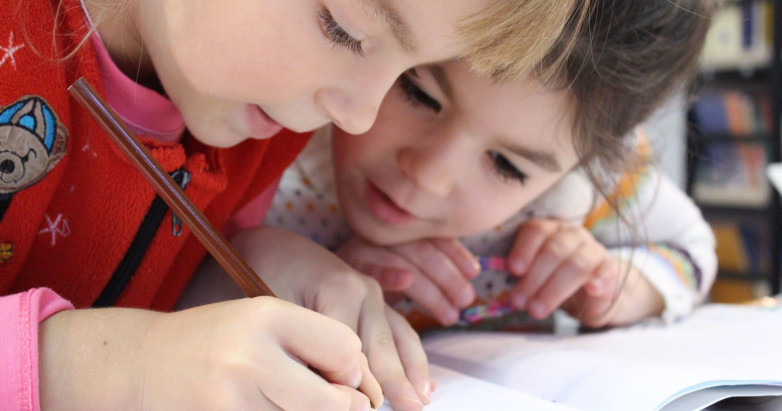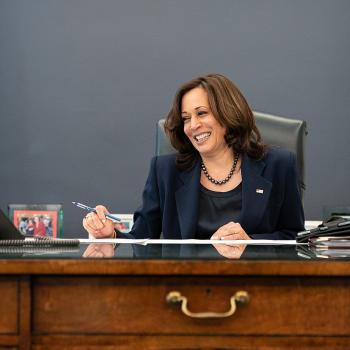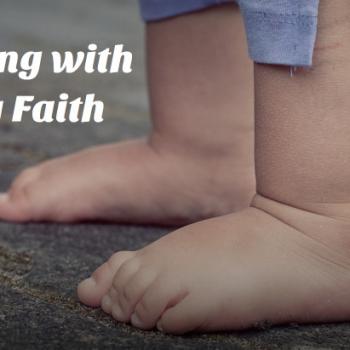Not everyone who grew up in fundamentalism become indoctrinated. Some are natural born dissenters, pushing against any agenda until they finally grow into legal autonomy. When I speak to people like this, I am often envious because that is not my story. My rebellion came much later in life, requiring me to shed an identity that is already woven into the fabric of my being.
Sometimes I shame my child self. Why was I so stupid—I bought into it, hook, line, and sinker. Why didn’t I know better? My environment was not a hard-core cult, I chose to pursue those teachings and make it my own. They told me it was because I had a soft, seeker’s heart.
The truth is, yes, I had moral agency of my own and made decisions I should take responsibility for, but I was also still just a child. I was only 12 years old when I was encouraged by the authorities and adults in my life to claim a Christian identity and publicly announce it to all my peers because that’s what makes it official.
I was vulnerable in many ways: I had yet to receive education (beyond elementary school) and cultivate my critical thinking skills, I was susceptible to trusting the adults in my life, and the environment I was in was deliberately controlled to reinforce the religious identity I was coaxed into. It was a violation of my spiritual autonomy as a minor. Just as we institute child protection policies to ensure children’s bodily and emotional autonomy, and to guard against abuse, so we should put policies in place for our children’s spirituality.
Spiritual autonomy is a human right. According to Joy Berry, children have the right to ask questions, think their own thoughts, believe their own beliefs, and to live free from fear.

In order to protect their human rights, here are seven policies I suggest we use as a guide to ensure our children’s spiritual autonomy:
1. Don’t convert a child. And don’t allow other adults to convert them either. There may be some mature teens who are ready to commit to a religious allegiance, but waiting until legal adult age wouldn’t hurt. I would argue I was far too young, at 12 years old, to have been able to give consent for my identity to be confined to evangelicalism, especially the kind that encourages fervor and being “sold out for Jesus.”
(Disclaimer: I am not opposed to infant baptism, or other forms of religious ritual that marks a cultural identity of a child in their family. But it should be symbolic, a sign to include a child as part of a community in love and belonging. What I am absolutely against is forcing a conversion using fear tactics, and asking the child to consent to an allegiance before she is capable of making an informed decision for her own life.)
2. Don’t limit a child’s spiritual imagination. Children have fantastic perceptions and intuitions of God. The book, OMG How Children See God, collects children’s pictures and words of who God is includes having “very big ears” and of “uncertain gender.” Often, religious systems set doctrinal limits to how one may speak of or think of God, and this leads to boundaries on questioning of one’s faith as the children grow.
3. Give permission to feel emotions. Because a lot of negative emotions were relegated as “sin” in my own childhood, I learned to repress them. A direct consequence of repressing negative emotions was the inability to fully enjoy the positive ones as well. As much as the evangelicalism of my youth preached about a “relationship with God,” it did not equip us to know how to address the myriad of human emotion that is required to enter fully into a healthy relationship. Regardless of the spiritual path our children choose, they have the right to walk in it having an understanding and command of their emotions.
4. Help them develop a strong intuition. Related to the previous point, we must persistently reinforce children’s own intuition. This is a safeguard, a tool that will guide them in whatever spiritual community they move in and out of, particularly so they can discern when something is “off.” It is spiritual manipulation and gas lighting to tell a child they cannot trust their own heart because it is rooted in evil. They can and they should trust their gut because it becomes their inner warning mechanism against systems that seek to harm.
5. Provide access to outside voices. Children should be allowed and given opportunities to process information with their peers and those beyond the religious community. Some mentorship programs or a blind obedience to celebrity pastors make me nervous. Spirituality should not require gatekeepers, and kids should have access to information channels so they can check what they’re learning with others. The internet is a saving grace for this generation as online communities are readily available. Even so, some religious communities use fear tactics to get young people to fear dissenting voices, hoping to erect spiritual firewalls. A true and authentic faith should not fear interrogation.
6. Teach Spiritual Multilingualism. Give our children opportunities to practice spirituality via more than one religious tradition. Exposure to different religions not only helps our children be more tolerant of differences but will enhance their ability to delve more deeply into one particular tradition, should they choose. Giving our children a broad religious landscape to ensures their right to explore freely.
7. Above all, Love. No, not the “love the sinner, hate the sin” brand of love. Love that overcomes toxic doctrines. I think of the Christian parent of the gay child, who despite the church’s teachings against homosexuality, can’t help but accept and love their child anyway, because they let love guide their ethic. Let’s make sure our children are in environments supported by that kind of true, unconditional love, because it will cover a multitude of errors.
Our children’s spiritual autonomy is just as important as their bodily and emotional autonomy. Laying a foundation of healthy spirituality will benefit them in a myriad of ways—these policies provide a check and balance to their spiritual environment, giving them the best chance for spiritual wholeness.
Get a free download of a Christian parenting manifesto that helps us guide children into healthy spirituality + a guide on How to Raise a Feminist Son + the most helpful parenting resources with progressive values.
















